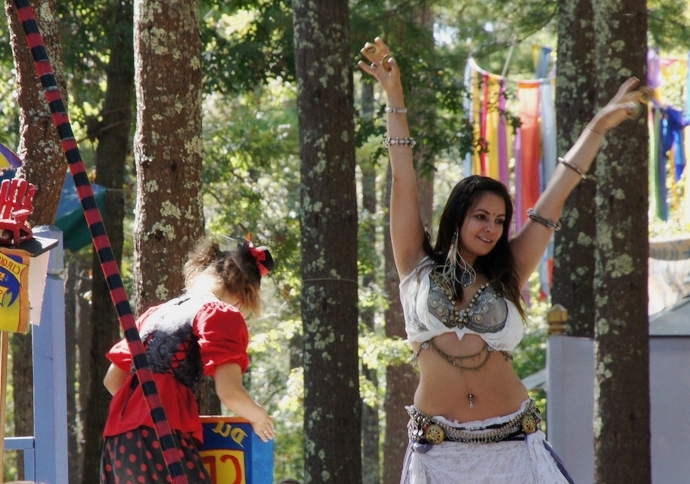Not all giants are ancient
/There is something in Pagan cyberspace that has been niggling at me for awhile like one of those little parasitic worms that got under my kid’s skin a couple of summers ago after she went dipping in a scummy pond.
That is the fad of dissing hippies.
OK, I’m ready to duck already .But this has got to be said. Gerald Gardener may or may not have started a modern witchcraft tradition and a lot of other big names contributed to the nice wave of Pagan-friendly public sentiment and popular trendiness we now enjoy, but without the counterculture movement, the New Age, and yes, the hippies, we would not be experiencing a western world in which Pagan spirituality and culture are both widespread and generally well-accepted.
Image via Pixabay
Without the cultural developments of these movements that are so widely ridiculed among Pagans, Wicca would most likely have remained a tiny fringe interest of a few wealthy eccentrics. Traditional witchcraft would have stayed where it was for centuries, losing ground and scrambling to preserve shreds of knowledge. And non-Hindu, non-indigenous Paganism would have remained in the history books.
Don’t get me wrong. I am as irritated by “fluffy bunny” New Age platitudes as any hard polytheist.. Yes, we intersect with the New Age sometimes and it can cause a bit of friction and some eye-rolling on both sides. But let’s face it. Other movements have impacts on the social environment we live in and even on us.
The New Age not only sheltered a lot of early Pagan, Wiccan and witchcraft books and tools in bookstores for several decades. It is only in the past twenty years that a meaningful line could be drawn between modern Paganism and the New Age.
I will grant that New Age spirituality has little directly in common with modern Paganism outside of a few visual trappings. But many people came to Paganism through contact with New Age authors, stores, publications and events.
Beyond the New Age movement, the wider counterculture of the 1960s and 1970s had an even deeper impact on society, opening up the possibility of acceptance and widespread information on small and growing spiritual movements of all kinds, including ours.
That brings me to my own background. My parents and most of the adults I grew up around were on the rural, financially poor fringes of both the counterculture and the New Age. They didn’t have the connections, wealth or geographic positioning to be part of early Wicca and other more recognized Neopagan groups. Instead they were what are today (usually disparagingly) called hippies.
Specifically, my father and mother arrived on a rocky piece of land in Northeastern Oregon shortly before I was born with little more than a broken down old truck to their name. There was a weathered one-room school house on the property, which they shared with another family—until it burned to the ground one November night, while they were out, due to a faulty DYI woodstove.
My folks were left in the snow with my two-year-old brother and my mom pregnant with me. My dad built our first house—often referred to as a “shack” by outsiders—around and over the old truck, which no longer ran. That’s where I grew up, learning to grow food, pay attention to natural cycles and call the quarters on important occasions.
We weren’t Pagan in the ways most widely recognized today, but we were in the ways that actually matter. And we were not alone.
As I traveled around the world as a journalist, I met countless adult children of the hippies—some better adjusted than others. Some adopted their parents’ values and some rejected them outright. But they all share a new kind of cultural assumption of fluidity and diversity—whether they like it or not—that has fostered the modern Pagan and witchcraft movements.
Why do I care if Pagans make fun of hippie names or other symbols? Can’t I just take a joke? Lighten up?
It bothers me. Maybe it is because it is part of my own roots. Maybe I’m not pure enough in my rejection of all things New Age. But there is something here Pagans should pay attention to. These too are our ancestors. They are the ones on whose shoulders we stand. Not all giants are ancient or even very tall. They sometimes just muddled through harsher times so that we can have what we have today.
Think on it the next time you laugh at a hippie name or a fluffy bunny chant.














